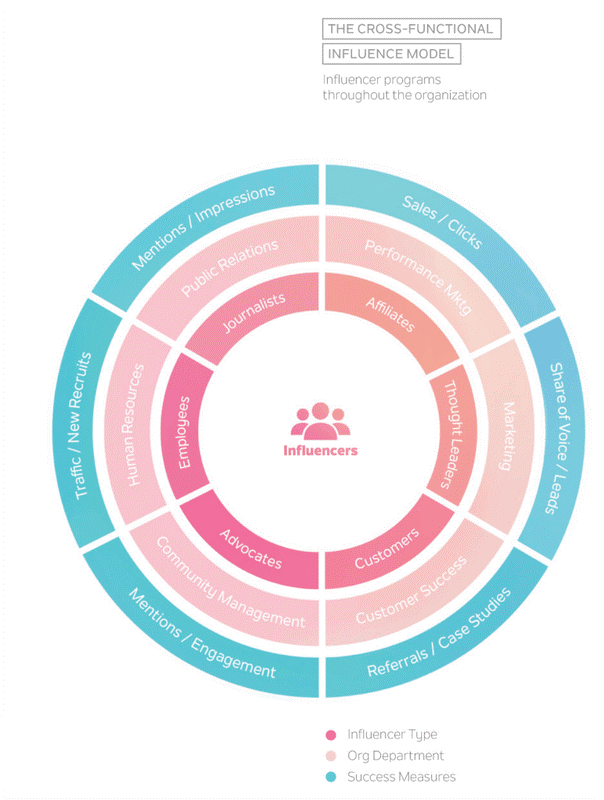
Influencer marketing seems to be the “newest” buzzword in marketing. If you haven’t heard the term, here are some definitions to review:
“Influencer marketing is the practice of engaging internal and industry experts with active networks to help achieve measurable business goals.” (Lee Odden, TopRank Marketing Blog)
“Influencer marketing is simply the action of promoting and selling products or services through people (influencers) who have the capacity to have an effect on the character of a brand.” (Global Yodel, The Huffington Post)
“Influencer marketing is an approach that seeks to maximize the effectiveness of efforts by targeting individuals who have a large following and whose opinions carry a lot of weight. Typically, the approach is applied in a social media marketing context.” (TechTarget)
“A nonpromotional approach to marketing in which brands focus their efforts on opinion leaders, as opposed to direct target market touchpoints.” (John Hall, Forbes)
So, why isn’t this a novel concept?
It’s a twist on an old marketing term: “Referral Sources” that we now recognize as “Referral Marketing.”
“Referral marketing is a process to encourage and significantly increase referrals from word of mouth, perhaps the oldest and most trusted marketing strategy. This can be accomplished by encouraging and rewarding customers, and a wide variety of other contacts, to recommend products and services from consumer and B2B brands, both online and offline.” (Wikipedia)
BUT, influencer marketing does differ slightly.
Here’s an example:
Years ago, when I led an internal marketing team, we developed strategies to reach the people who could refer our programs and services to prospective clients. One such service was a unique type of physical therapy (developed in Europe) that helped people with physical disabilities become more functional.
How did we acquire more clients?
We went after the healthcare “referral sources” who could recommend us to their patients. That helped narrow our scope considerably, making our marketing tactics more affordable than attempting to reach too wide an audience. The doctors, occupational therapists, and other healthcare professionals with direct access to our prospects were the ones who could spread the word for us.
Another referral source was our clients who benefited from the therapy program. However, their numbers were very low compared to the healthcare professionals we targeted.
These referrers were very influential in the success of our service. They weren’t famous or had gazillions of followers—mostly because this was before the advent of social media. Yet, they had the power to recommend our service to the very people we wanted to serve.
If we examine the influencer marketing definitions above, the only one that includes a targeted approach is Lee Odden’s: “engaging internal and industry experts with active networks.” What’s the point of getting opinion leaders to promote your products, programs, or services unless their audiences include your target market segments??
Before you run off to try influencer marketing, there are some study results you may want to read. Although these results focus on enterprises, the stats are valuable.
| 43% of companies surveyed are still experimenting with influencer marketing, and 28% involve influencers only at the campaign level. |
| Nearly three-quarters (71%) of brand marketers rate influencer marketing as a strategic or highly strategic marketing category, while 83% of respondents cited “identifying and building one-on-one relationships with industry key influencers” as a top marketing priority. |
| 55% of marketers surveyed said they plan to spend more on influencer marketing in the coming year. |
| Only 5% of marketers surveyed are implementing integrated influencer activities across all functions. |
| 57% of respondents said they believe influencer marketing will be integrated into all marketing activities in 3 years. |
| The majority (94%) of marketers said they would like to explore how influence can improve brand advocacy, 92% want to use it to expand brand awareness, 88% want to reach new highly targeted audiences, 86% to want achieve increased share of voice, and 74% want to improve sales conversion. |
| 86% of B2C marketers used the channel in 2016, with content being the top driver. |
| Of the B2C marketers who used influencer marketing in 2016, 89% of marketers did so to create authentic content about their brand, 77% used influencer marketing to drive engagement around their brand and 56% used the channel to drive traffic to their websites or landing pages. |
Studies: Influence 2.0: The Future of Influencer Marketing, The State of Influencer Marketing 2017
Influencer Types
My 2 Cents on Using Influencer Marketing for Your Business or Organization
- If you don’t have a written marketing plan based on sound research and strategy, you won’t know whether influencer marketing is a good option for you.
- If you believe there are experts with access to your specific prospects, do some research first. Check out their followers, blog posts, and social media connections.
- Don’t ignore influencers and referral sources who aren’t as active online. If they can refer your biz/org, it may be a good investment to reach them using traditional marketing channels.
- There are legal and ethical issues surrounding influencer marketing. Being transparent is essential if you compensate your influencers in any way. In the U.S., the FTC requires disclosure of sponsorship within all paid influencer-created content, including social posts.
- Lastly, set objectives and test your tactics. Tweak them as needed. If influencer marketing is going to work for you, you’ll know soon enough whether it’s worth your effort.
Are you using influencer marketing? How’s it going?













